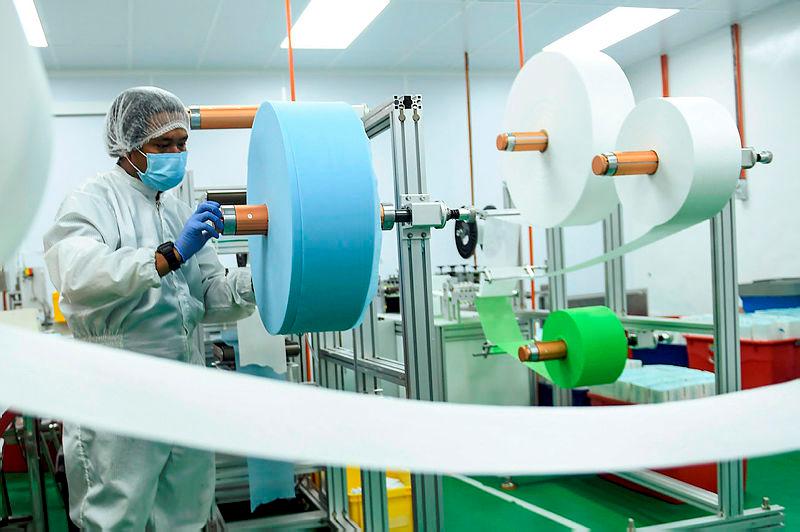KUALA LUMPUR: With the dawn of 2024, the SME Association of Malaysia is looking forward to further promoting small and medium enterprises as the backbone of economic growth.
Its president Ding Hong Sing said the association’s confidence has been boosted by Budget 2024’s allocation of RM44 billion to advance micro, small and medium-sized enterprises (MSME).
“MSME contributed 38.2% to the gross domestic product in 2021 and employed 7.3 million workers.
“Our 2023 growth was due to the government’s promotion of initiatives such as the Corporate Green Power Programme, which presented SME with investment opportunities, especially for the environmental, social and governance (ESG) centric markets like Europe and the US.”
Ding said the push towards high-tech industrial transformation benefitted SME by integrating technology and addressing global demand.
“In Budget 2024, RM2 billion was allocated for the National Energy Transition Roadmap and RM900 million for digitalisation to boost SME productivity and green transition.
“Recent policy shifts in Malaysia also underscore a collective effort to bolster SME, particularly in ESG and industrial transformation,” he said, adding that to achieve net-zero greenhouse gas emissions by 2050, Malaysia has adopted Sustainable Development Goals and ESG frameworks.
Ding also said key budgetary provisions from 2024 include elevating salary ceilings and introducing initiatives to increase public sector integration. He anticipates a 20.2% increase in benefits for 1.45 million workers from such initiatives.
“Simultaneously, there is a push for SME to move from labour-intensive to knowledge-driven industries in 2024, along with an emphasis on regional development, for which significant funding has been provided in Budget 2024 to improve infrastructure in Sabah and Sarawak.”
Ding said SME in Malaysia are presented with an abundance of training opportunities to enhance competitiveness and adapt to evolving sectors, adding that these were aligned with the New Industrial Master Plan 2030 missions, in which training will focus on science, technology, engineering, and mathematics.
Training will also be provided in advanced innovations and ESG practices that are crucial for Industry 4.0 and artificial intelligence integration.
“Collaborative efforts between the Human Resources Ministry (MOHR), Higher Education Ministry (MOHE) and industry partners also channelled RM6.8 billion for technical and vocational education and training (TVET) programmes.
“This includes RM1.6 billion for 1.7 million training slots as provided for in Budget 2024.”
Ding said in fostering skills development for SME, the association would continue to collaborate with educational institutions and organisations to align talent supply with industry demands.
He said the efforts encompass enhancing TVET programmes, fostering research and development partnerships on ESG and innovations, and crafting specialised training initiatives.
These will be led by MOHR and MOHE, and supported by Talent Corporation Malaysia Berhad and the Human Resource Development Corporation.
The strategy will integrate talent evaluation from diverse educational institutions, forecast industry needs and tailor training to pivotal sectors.
Ding said to support SME in international expansion, the government and associated entities have provided a variety of financial and non-financial aid.
“Notably, the Market Development Grant by Malaysia External Trade Development Corporation (Matrade) offers up to RM300,000 for overseas market penetration activities, covering costs from booth rentals to digital marketing.
“Businesses are encouraged to engage with Matrade for market insights, training and access to international trade leads. Financing support is also available from institutions under Majlis Amanah Rakyat, SME Bank and Exim Bank, facilitating SME readiness for global markets.”
He added that despite the association’s efforts, SME in Malaysia continue to grapple with multiple challenges, which will be looked into this year.
These range from business strategies not being aligned with national goals to organisational constraints for transformative endeavours.
“Accessing financing in challenging economic times and limited awareness of government support programmes further worsen our struggle.
“Continuous engagement and support remain pivotal as SME navigate these obstacles,” he said.









